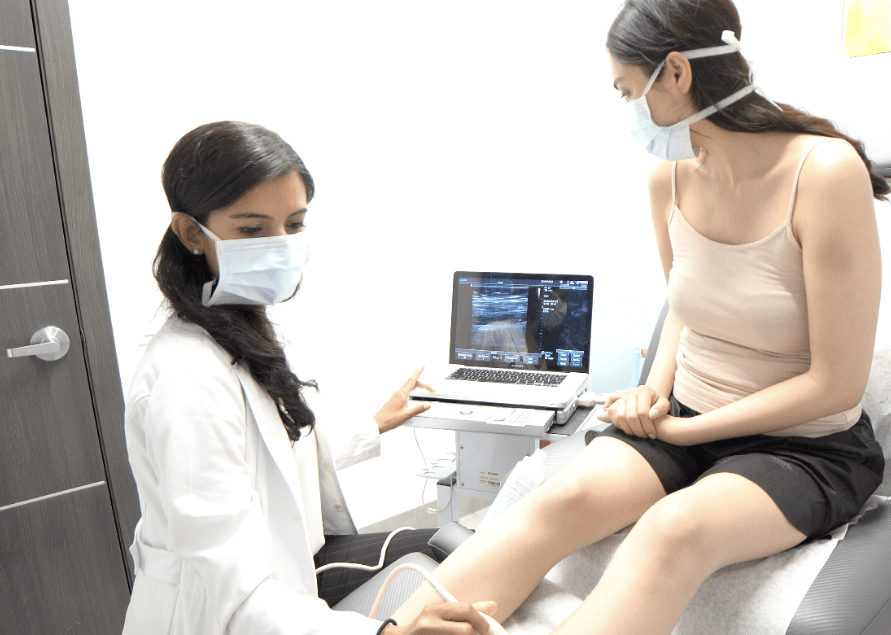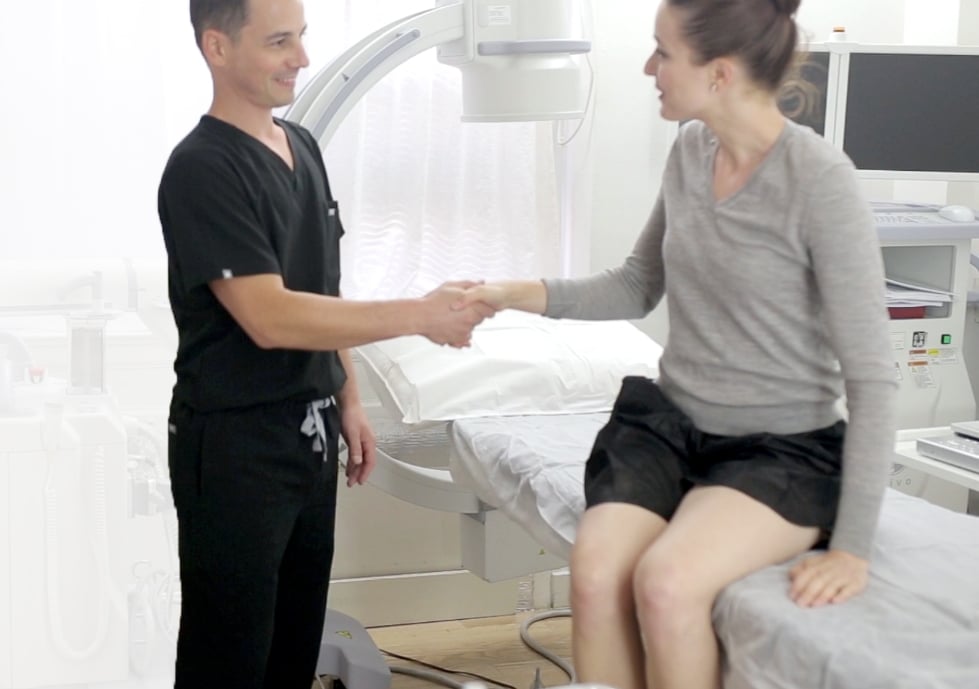What are the Treatment Options for Varicose Veins?
Varicose veins are enlarged, twisted veins that often appear on the legs and feet. They occur when the valves in the veins that regulate blood flow become weak or damaged, causing blood to pool and the veins to swell. This condition is not only a cosmetic concern but can also lead to discomfort and more serious health issues if left untreated.
Symptoms and Causes of Varicose Veins
Common symptoms of varicose veins include aching pain, swelling, and a feeling of heaviness in the legs. They may also cause itching and skin discoloration. Several factors contribute to the development of varicose veins, including age, gender (women are more likely to develop them), genetics, obesity, pregnancy, and prolonged standing or sitting.
Conservative Treatments
Before considering more invasive procedures, there are several conservative treatment options for managing varicose veins. These include lifestyle changes and non-surgical interventions that can help alleviate symptoms and prevent the condition from worsening.

Compression Stockings
Compression stockings are a common first-line treatment for varicose veins. These specialized stockings apply pressure to the legs, helping to improve blood flow and reduce swelling. They come in various levels of compression and can be worn throughout the day to provide relief.
Exercise and Weight Management
Regular physical activity and maintaining a healthy weight are crucial for managing varicose veins. Exercise helps improve circulation and strengthens the muscles that support the veins. Weight management reduces the pressure on the veins, particularly in the legs.
Elevation of Legs
Elevating the legs above heart level several times a day can help reduce swelling and improve blood flow. This simple practice can alleviate symptoms and provide comfort, especially for those who spend long hours standing or sitting.
Minimally Invasive Procedures
When conservative treatments are not enough, several minimally invasive procedures can effectively treat varicose veins. These procedures are typically performed on an outpatient basis and involve minimal downtime.
Sclerotherapy
Sclerotherapy is a popular treatment for small to medium-sized varicose veins and spider veins. During the procedure, a solution is injected into the affected veins, causing them to collapse and fade over time. Multiple sessions may be needed for optimal results.
Laser Therapy
Laser therapy uses focused light energy to heat and damage the vein, causing it to close and eventually disappear. Endovenous laser treatment (EVLT) and surface laser treatments are two common types of laser therapy used to treat varicose veins.
Radiofrequency Ablation
Radiofrequency ablation (RFA) is a technique that uses radiofrequency energy to heat and close off varicose veins. A catheter is inserted into the vein, and heat is applied to the vein wall, causing it to collapse and seal shut. The body then naturally reroutes blood to healthier veins.

Endovenous Laser Ablation
Endovenous laser ablation (EVLA) is similar to radiofrequency ablation but uses laser energy instead. A thin laser fiber is inserted into the vein, and laser pulses cause the vein to collapse and close. This procedure is highly effective for larger varicose veins.
Surgical Treatments
In cases where varicose veins are severe and other treatments have not been effective, surgical options may be considered. These procedures are more invasive and typically require a longer recovery period.
Vein Stripping and Ligation
Vein stripping and ligation involve tying off and removing the affected veins through small incisions. This procedure is usually done under general anesthesia and may be recommended for large, painful varicose veins.
Ambulatory Phlebectomy
Ambulatory phlebectomy is a minimally invasive surgical procedure that involves removing varicose veins through small punctures in the skin. It is often performed under local anesthesia, and patients can usually return to normal activities within a few days.
Emerging Treatments
Advancements in medical technology have led to the development of new and innovative treatments for varicose veins. These emerging treatments offer additional options for patients seeking relief from their symptoms.
Clarivein
Clarivein is a non-thermal treatment that combines mechanical and chemical methods to treat varicose veins. A rotating catheter is used to deliver a sclerosing agent to the vein, causing it to close. This procedure is minimally invasive and does not require anesthesia.
Venaseal
Venaseal is a medical adhesive used to seal varicose veins. During the procedure, a catheter is used to deliver the adhesive to the vein, sealing it shut. Blood is then rerouted to healthy veins. Venaseal is minimally invasive and involves little to no downtime.
What is a Vein Doctor Called?
Understanding the Role of a Vein Doctor
A vein doctor specializes in diagnosing and treating conditions related to the veins. These medical professionals have extensive training in vascular medicine and are skilled in various treatments for venous disorders, including varicose veins, spider veins, and chronic venous insufficiency.
Types of Vein Specialists
There are different types of doctors who may be referred to as vein specialists, each with specific expertise in treating vein conditions.
Phlebologist
A phlebologist is a doctor who specializes in the diagnosis and treatment of vein disorders. Phlebologists are experts in minimally invasive procedures such as sclerotherapy, laser therapy, and radiofrequency ablation. They often manage conditions like varicose veins, spider veins, and venous ulcers.
Vascular Surgeon
A vascular surgeon is a highly trained specialist who can perform complex surgeries on the vascular system, including veins and arteries. While they treat a wide range of vascular conditions, they are particularly skilled in surgical treatments for severe varicose veins and other serious vein disorders.
Interventional Radiologist
An interventional radiologist is a medical doctor who uses imaging techniques to guide minimally invasive procedures. They are often involved in the treatment of varicose veins using methods like endovenous laser ablation and radiofrequency ablation. Their expertise in imaging allows for precise and effective treatment.
Qualifications and Training
Vein specialists undergo extensive education and training to become experts in their field. This typically includes:
- Medical School: A four-year program that provides foundational medical knowledge and clinical skills.
- Residency: A residency program in a relevant specialty, such as general surgery, radiology, or internal medicine. This training lasts several years and offers hands-on experience.
- Fellowship: Many vein specialists complete additional fellowship training in vascular medicine or interventional radiology, focusing on advanced techniques for treating vein disorders.
- Board Certification: Vein specialists often pursue board certification in their specialty, demonstrating their expertise and commitment to high standards of care.
When to See a Vein Specialist
It is important to seek the expertise of a vein specialist if you experience symptoms of vein disorders or have risk factors for developing varicose veins. Common reasons to see a What is a Vein Doctor Called include:
- Persistent Leg Pain: If you experience ongoing pain, heaviness, or aching in your legs, a vein specialist can help determine the cause and recommend appropriate treatment.
- Visible Varicose Veins: Prominent, swollen veins that are visible under the skin may indicate varicose veins. A vein specialist can assess the severity and suggest treatment options.
- Skin Changes: Discoloration, itching, or ulcers on the skin near varicose veins may indicate advanced venous disease. Prompt evaluation by a vein specialist is essential.
- Swelling: Persistent swelling in the legs or ankles can be a sign of venous insufficiency. A vein specialist can provide a thorough evaluation and recommend treatment to alleviate symptoms.
Choosing the Right Vein Specialist
Selecting the right vein specialist is crucial for effective treatment and optimal outcomes. Consider the following factors when choosing a vein doctor:
- Experience and Expertise: Look for a specialist with extensive experience in treating vein disorders. Ask about their training, certifications, and the number of procedures they have performed.
- Reputation: Research the specialist’s reputation by reading patient reviews and seeking recommendations from trusted sources.
- Communication: Choose a vein doctor who listens to your concerns, explains treatment options clearly, and involves you in decision-making.
- Technology and Techniques: Ensure the specialist uses advanced technology and minimally invasive techniques for treating vein disorders.
- Comfort and Trust: It is important to feel comfortable with your vein specialist and trust their expertise. A positive doctor-patient relationship can enhance the overall treatment experience.
Conclusion
Understanding the various What are the Treatment Options for Varicose Veins and knowing what to expect when seeing a vein specialist can empower you to make informed decisions about your health. Whether you opt for conservative treatments, minimally invasive procedures, or surgical options, consulting with a qualified vein doctor is the first step towards relief from varicose veins and improved vascular health. By choosing the right vein specialist, you can ensure that you receive the best possible care tailored to your specific needs.
Comments
Post a Comment